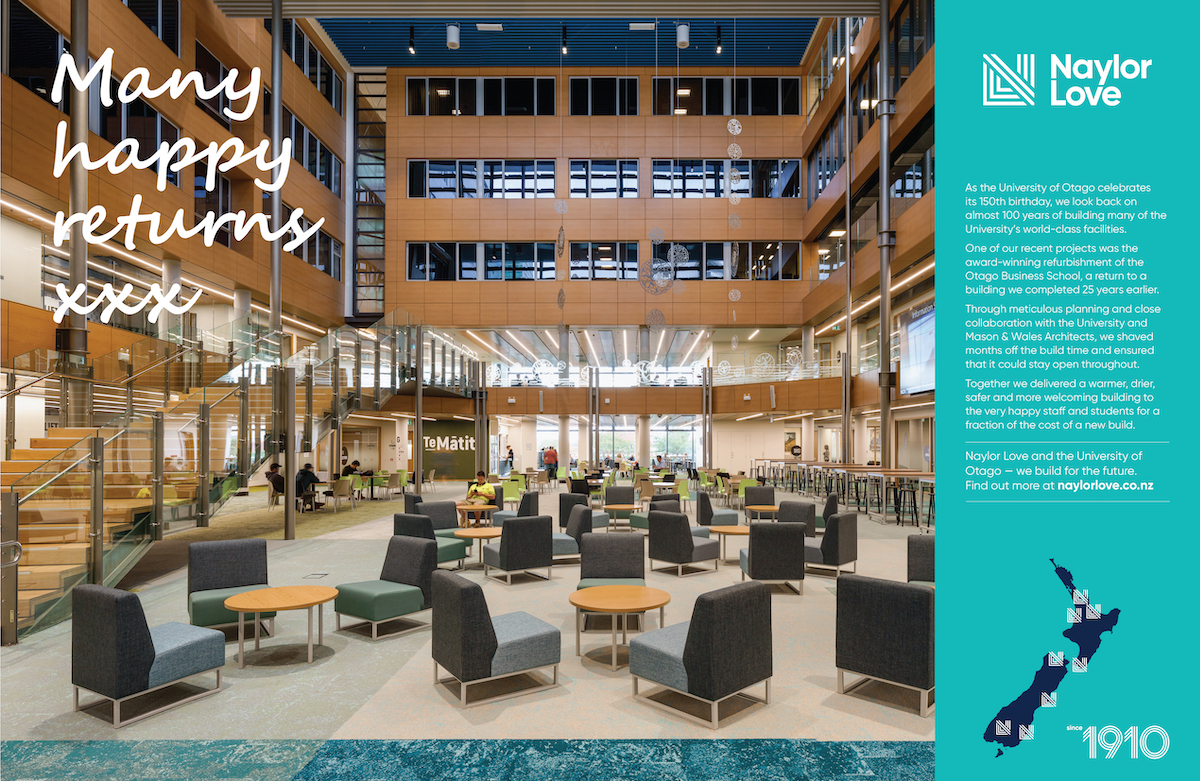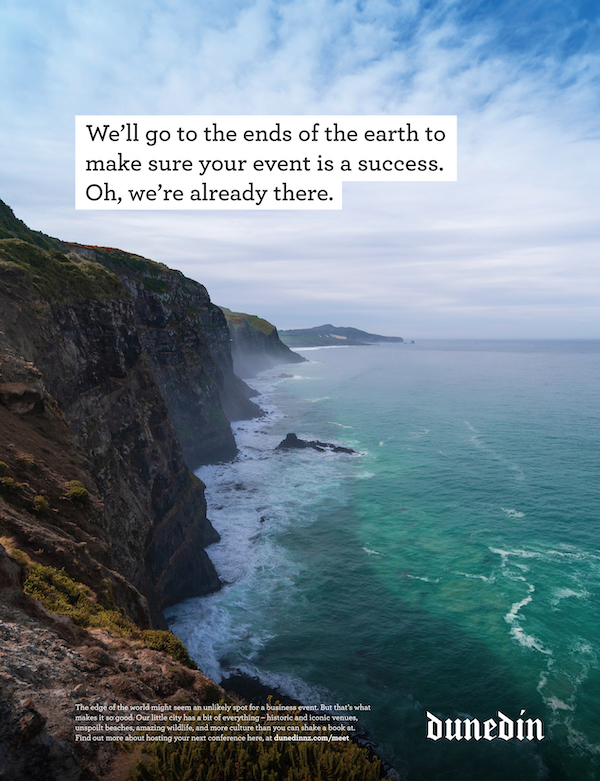When Harlene Hayne and her husband arrived in Dunedin in 1992, they only planned to stay for a few years. Originally from the US, the couple both got jobs in the psychology department at the University of Otago and saw the move as an academic adventure rather than a long-term plan. “We had every intention of going back to the US,” Harlene says. As it turned out, the pair grew to love both the city and the university more than they ever imagined. Nearly 28 years later, Harlene and her family still call Dunedin home.
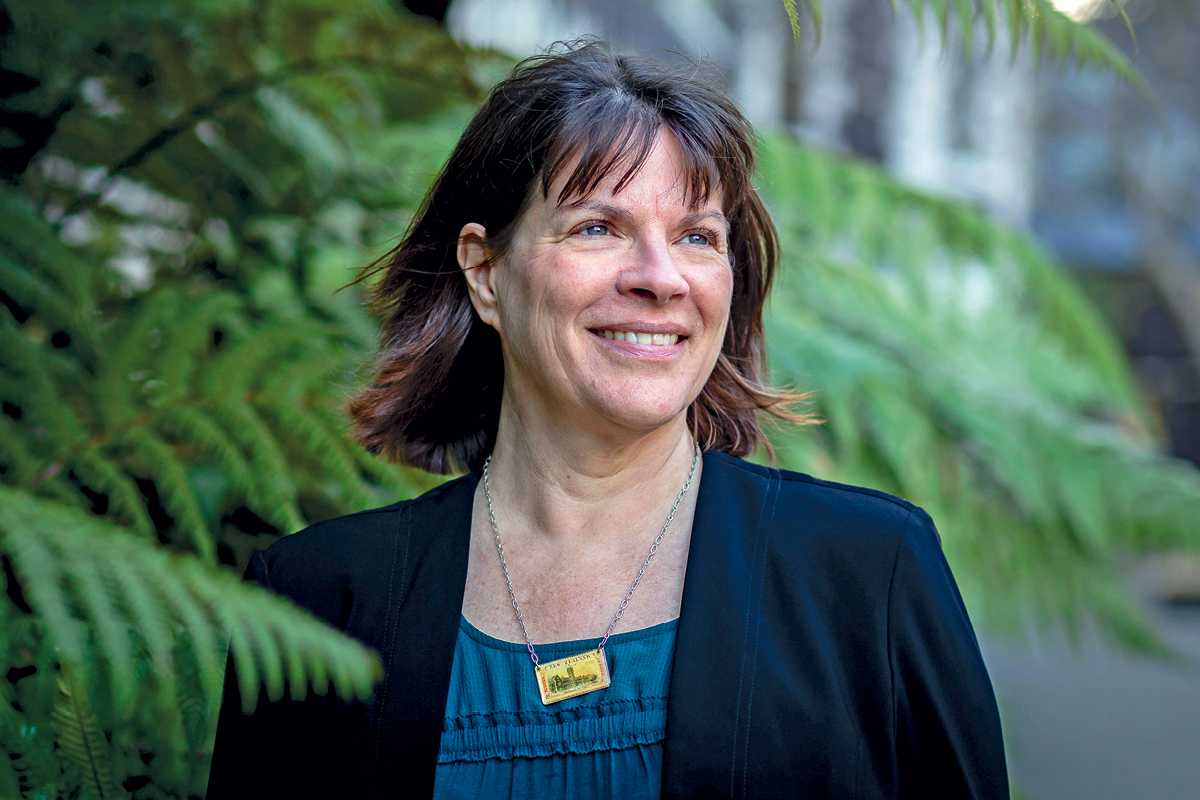
“When we got to Otago, we very quickly realised that the calibre of the students here was outstanding, and the opportunity for us to excel in our research was far better than it was in the US,” she reflects.
“Those were the two professional drivers that have kept us here. We had a seven-month-old infant at the time we moved here, and we subsequently had another child. New Zealand has also just been a remarkable place to raise our children.”
After arriving at Otago, the psychology professor established herself as a talented and dedicated teacher and researcher. She was appointed Head of the Psychology Department in 2006 and three years later became Deputy Vice-Chancellor (Research and Enterprise).
In 2011, Harlene was named Otago’s first female Vice-Chancellor. Eight years on, she’s thrilled to be leading the university as it celebrates its milestone 150th anniversary.
“One of the reasons that I wanted to continue on in my role as Vice-Chancellor for the second term was that I really did want to be here for the sesquicentennial,” she says. “It’s a once-in-a-generation opportunity to be leading a university at such an auspicious moment. I feel very blessed that the council has trusted me with this incredibly important role at this particularly important time in our history.”
“It’s a once-in-a-generation opportunity to be leading a university at such an auspicious moment. I feel very blessed that the council has trusted me with this incredibly important role.”
Here, Harlene speaks with The CEO Magazine about the importance of this anniversary and the university’s strong ties with local businesses and the community.
How is the university commemorating this milestone occasion?
This year, for 365 days, we are celebrating the incredibly illustrious history of Otago. But at the same time, we’re using that history as a springboard for the kinds of things that we want to achieve in the future. For me, watching this unfold has been interesting because getting staff and students to reflect on the amazing achievements of this university over its 150-year history makes them prouder and it makes them bolder for the future.
We’ve been talking extensively about the founding of the university in 1869. The Scots came to New Zealand in the mid-1840s and, by the late 1860s, they really wanted a university. The government said the colony was far too young for a university. But those early Scottish settlers didn’t take no for an answer. They appealed to the Presbyterian Church, and the church provided the money for the first foundation professors of Otago.
I think the message that this university was founded in spite of government, not because of it, has given people a certain sense of independence and pride, and a feeling that we really can achieve anything.
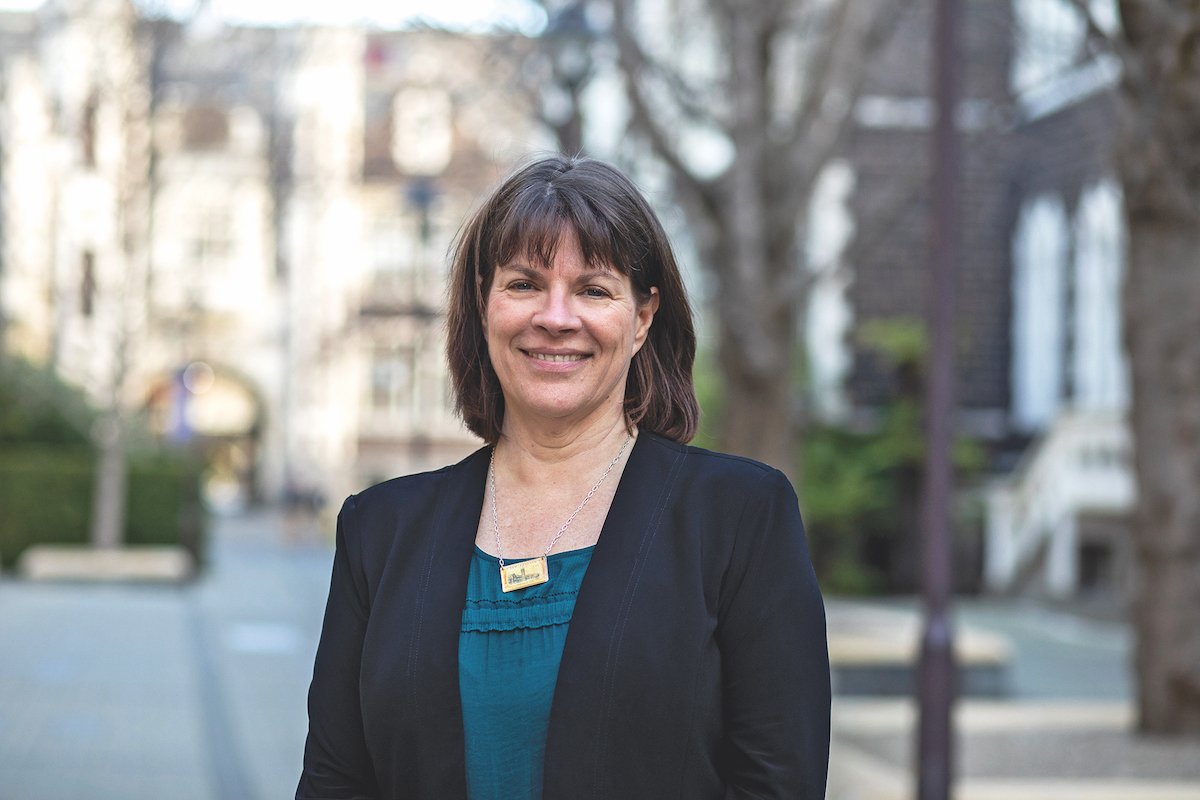
How is the legacy of those founders reflected in the university today?
The Scots have a very egalitarian approach to education. They believe that everyone should have access to high-level tertiary education, and Otago still adheres to that view. I’m really proud of the fact that 30% of our student body are the first person in their family to go to university. Because I was a first-generation university attendee myself, I know from my own personal experience that the education they are receiving here will change their lives forever.
Also, many of our beautiful historic buildings are a real nod to Scottish architecture. Much of our campus looks like you were just dropped right in the middle of Edinburgh. But in addition to that proud Scottish legacy that we have, we’re now in a position, 150 years later, to stake our claim as citizens of this part of the world. One of the things we’ve been spending a lot of time talking about this year is that we really are a Pacific university.
We are located right in the middle of the Pacific, and the values of the Maori and Pasifika people here in New Zealand are an integral part of the DNA of Otago. I think it’s a real sign of the maturity of this university that we’re can build on that Scottish legacy and add our Pacific wings to the way that we do things here.
The Scots also created your motto, “Dare to be wise”. How do you instil this in your students and staff?
For us, “dare to be wise” is really a challenge. It’s a challenge that was set down by those early Scottish founders that we would dare to be wise; that we would use our intellect, resources, research, students and staff in order to tackle some really big problems. I’m very proud that this university is highly committed to using our knowledge, research and expertise for the betterment of New Zealand and the rest of mankind.
“I’m very proud that this university is highly committed to using our knowledge, research and expertise for the betterment of New Zealand and the rest of mankind.”
I think the Scots had quite a bit of foresight when they challenged us to dare to be wise. I would like to think that 150 years later they would be really proud of what we’ve been able to achieve and what we are continuing to try to achieve with both our research and education.
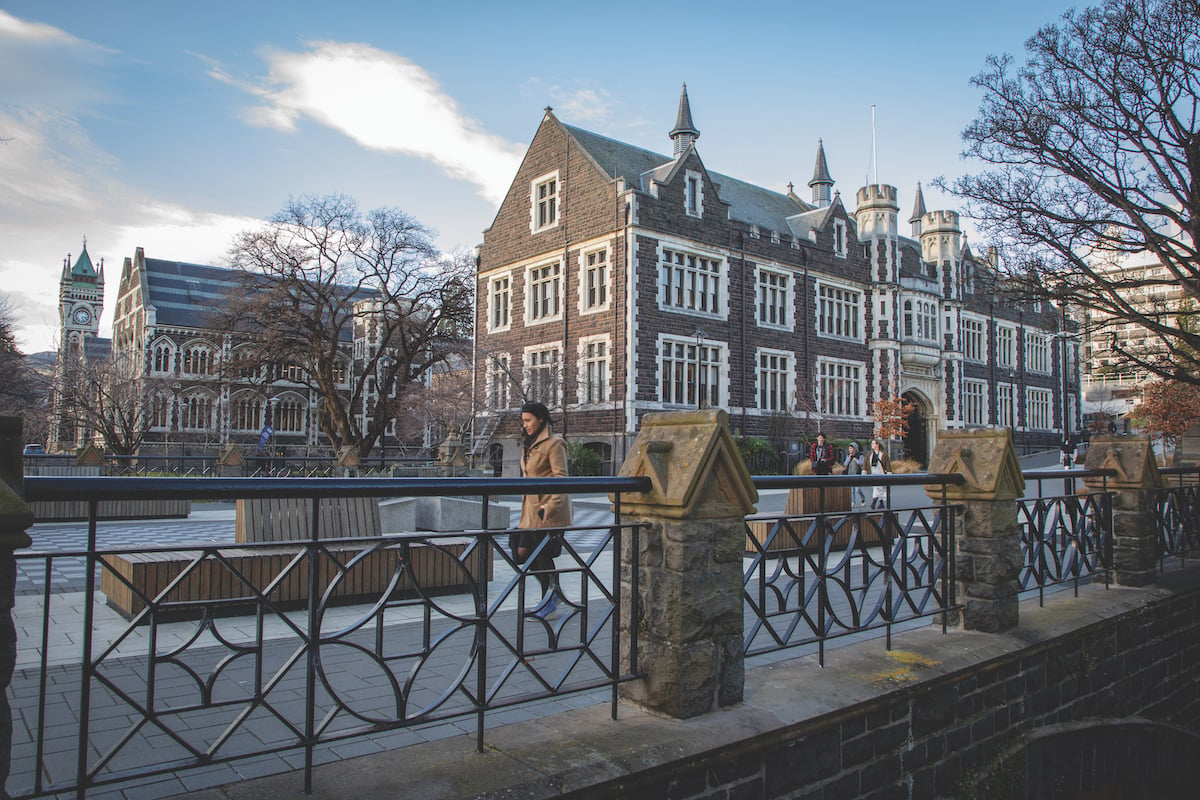
How has the ethnic diversity of the university changed over the past 150 years?
Quite dramatically. When the first classes were held here, there were 81 students in the incoming class of 1871. They had two things in common: they were all male and they were all European. Now, our student body is remarkably diverse. More than 60% of our students are female. There are currently more than 2,000 Maori students and more than 1,000 Pasifika students studying here.
In addition to those two groups, we also have students from approximately 100 different countries around the world. In fact, we have students from every continent on the planet except for Antarctica. This is an amazingly diverse group of individuals, and I think that also provides an amazing learning opportunity for the students who choose to come here. This is a place where everyone’s culture is strongly valued and celebrated.
How important is it for you to maintain close ties with the Dunedin City Council?
Well, we are a university of 20,000 students in a town of 120,000 people. You have to go pretty far to find someone who doesn’t study at the university, work at the university or isn’t related to someone who works or studies at the university. We are a very well integrated community. I think one of the keys to our success has been to build on that high level of integration.
Both the city and the university really recognise the value of our partnership. If it weren’t for the university, the city of Dunedin would be a much less vibrant and interesting place. But, by the same token, the city of Dunedin also provides an incredibly welcoming home for the university. We tend to combine our efforts and knowledge in order to provide both a better city and a better university.
You also have a strong partnership with the Dunedin Highlanders rugby union team, don’t you?
Yes. This is an incredibly tribal place. Our students and alumni are incredibly loyal fans of Otago, and it turns out that those same people are also huge fans of the Highlanders. A few years ago, we combined that loyalty to those two brands and it’s led to some really magical moments for us.
The Highlanders provide an outstanding opportunity for us to not only enjoy the success of the local rugby team, but every time we watch them play with our name on their backs, we’re also cheering for the university.
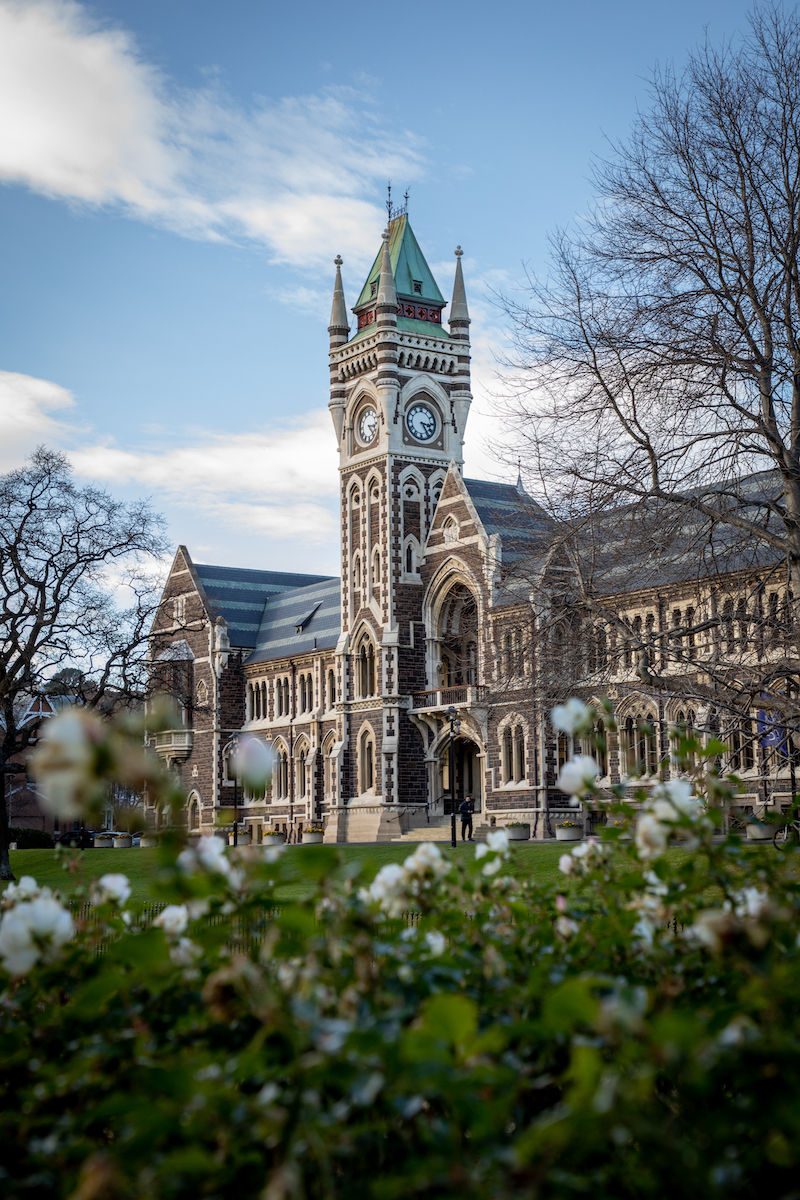
Many of your buildings on campus were constructed by New Zealand-based commercial construction company Naylor Love. How has that relationship developed over the past century?
Although Naylor Love is now a big nationwide contractor, it didn’t start off that way. Naylor Love was formed in 1969 by the merger of WH Naylor and Love Brothers Construction, two prominent Dunedin building companies that were formed in 1910. Because Otago has also been here for a long time, we share this very proud history together.
Over the years, Naylor Love has been involved in a large number of projects here at Otago. I think our shared Dunedin origin and our strong mutual presence here has led to a really productive professional relationship.
You’re ranked in the top 1% of universities in the world. What do you think has contributed most to the university’s success?
I think it’s really been a focus on the basics: outstanding teaching, outstanding research and an outstanding student experience. In terms of teaching, first and foremost, Otago is a school and we take our commitment to education incredibly seriously. Obviously, research also plays a really important role in the international rankings. One of the things we’re very proud of here at Otago is that not only are we conducting research that’s internationally competitive and being published in the highest ranked journals, but it’s also research that is useful.
“Getting staff and students to reflect on the amazing achievements of this university over its 150-year history makes them prouder, and it makes them bolder for the future.”
Our researchers are committed to sharing their findings with their academic peers, but they’re equally interested in making sure that that research is being used to solve some of the country’s, and the world’s, biggest problems. The other thing that’s really important is the high calibre of our student experience. That’s something that differentiates Otago from most universities in this part of the world.
This is a truly residential university and it’s a place where 20,000 young people come to take their final steps to adulthood. It’s been a fantastic opportunity for most of our students to come here, not only to learn, but also to live. It’s something that our students report back to us in their graduating reviews that it was probably the most influential part of their experience here, the opportunity to learn through living with their peers.
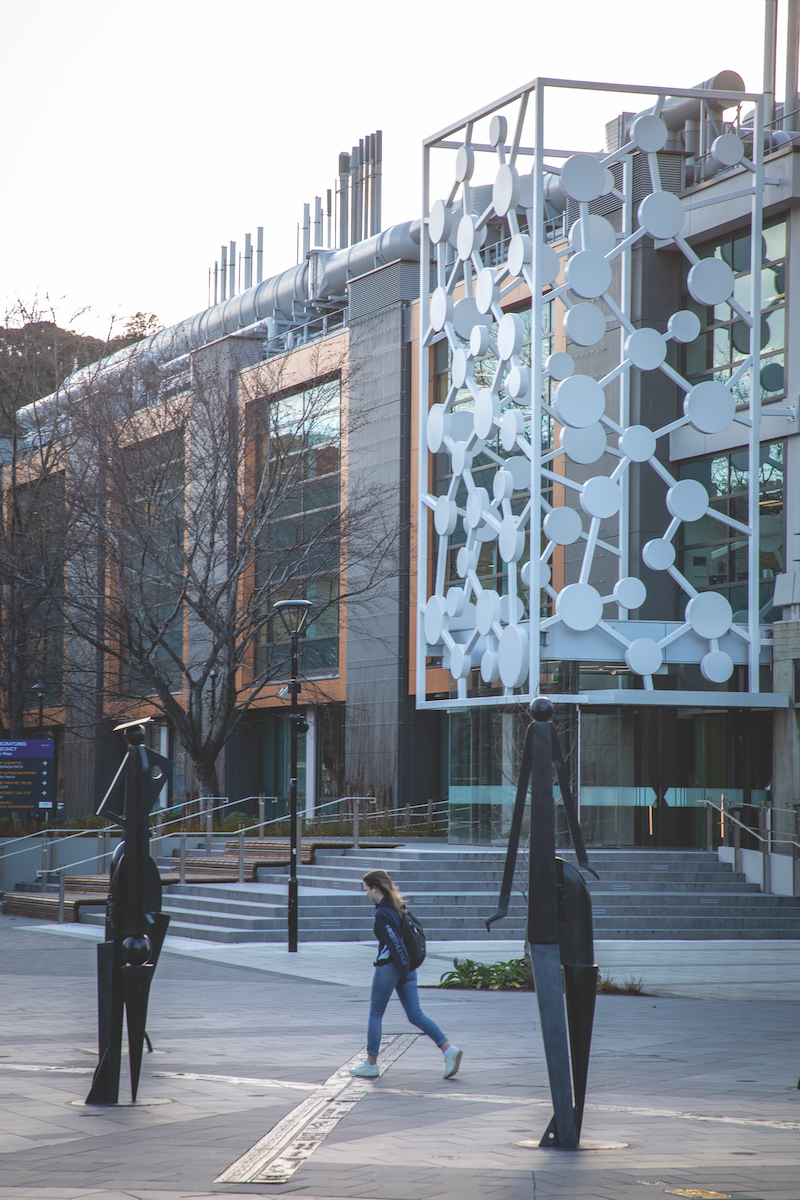
What impact does this residential environment have on student experience?
One of the things that is different about Otago is that 85% of our students come from somewhere else. They get on a plane or in a car and they leave their family and their home and everything that is familiar to them. They move here to Dunedin, where they live with thousands of other young people who have made a similar decision to change their address quite radically. If you think about the kinds of challenges and opportunities that provides, it’s really limitless. Our young people come here with a real spirit of adventure and they meet peers who are similarly motivated.
For first-year students, our colleges don’t just provide a bed and a meal. It’s a full pastoral care service that provides all of the other things that help students in their first year away from home. We know, on the basis of research that we’ve done, that those colleges are a real key to our success with first-year students. In fact, one of the statistics that we’re really proud of is the progression of our first-year students on to second-year study.
We know that’s one of the best predictors; if you can get them through the first year, they are likely to graduate. One of the major influences in getting so many students through that first year is the kind of pastoral care they get in those residential colleges.
When you talk to prospective students and their parents who are not familiar with Otago, how do you capture the essence of the university?
One of the things that I remind parents is that a lot of what we do here at Otago is based on the wisdom of two great leaders in the world. The first one is Nelson Mandela. One of the things that Mandela reminds us is that education is the most powerful weapon you can use to change the world. The other leader I rely on is the Dalai Lama.
The Dalai Lama tells us that when educating young minds we should not forget to educate their hearts. At Otago, we have been educating young hearts and young minds for the past 150 years and, in doing so, we have been changing the world one person at a time.
“At Otago, we have been educating young hearts and young minds for the past 150 years and, in doing so, we have been changing the world one person at a time.”
What is your vision for the future of the university?
The most exciting thing for us is that, over the next year, we will be actively engaged in our strategic planning to 2040. We’ve set quite a long horizon for ourselves because we didn’t want to be constrained by all the reasons that we couldn’t do things. We’re reaching out a little bit into the future so that we can be more creative and bolder for what this university is going to be 20, 30 and 40 years from now.
Of course, there are some things about this university that will never change. We will continue to be an outstanding educational institution. We will continue to be a place where people conduct cutting-edge research that is used to solve real-world problems. We will also provide an outstanding experience for our students. But, as we go forward, we will be more explicit about how we want this university to be a model of the world in which we would like to live.
We will be spending a lot of time on diversity, sustainability and community service, because this institution has the potential to be a major engine for social change. As we go forward, I think we will be putting quite a firm stake in the ground about our aspirations in those areas.
Proudly supported by:
